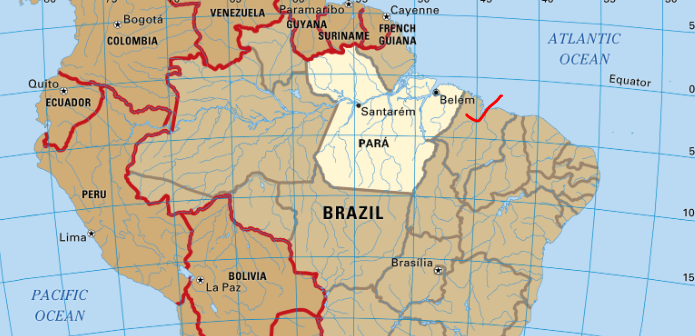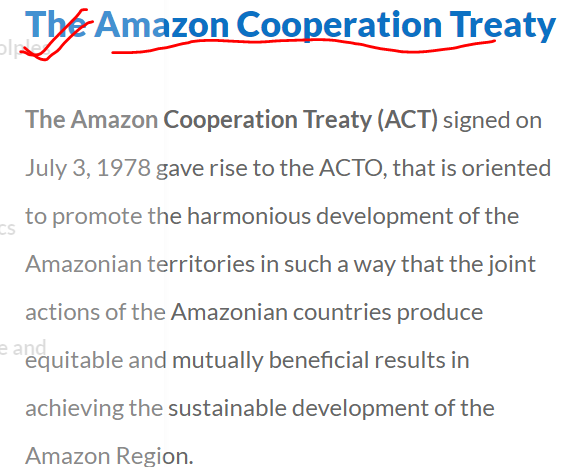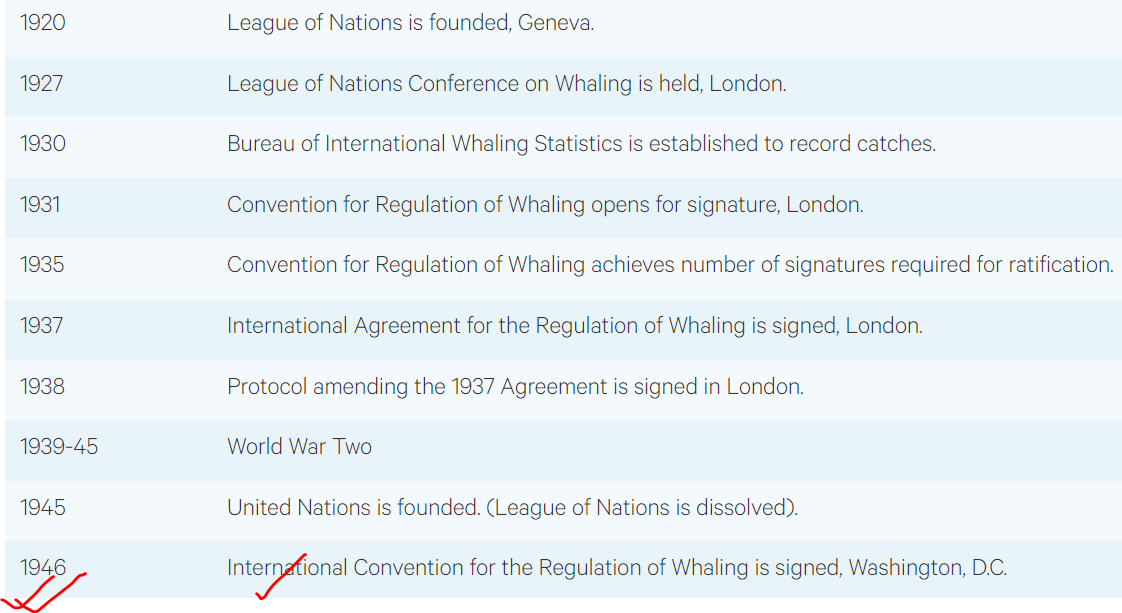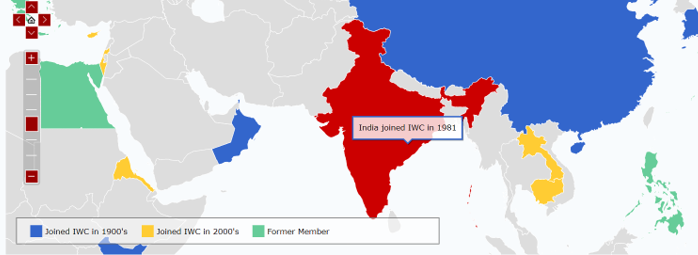Goaltide Daily Current Affairs 2023
Current Affair 1:
Amazon Cooperation Treaty Organization (ACTO)
The Amazon Cooperation Treaty Organization (ACTO) is an intergovernmental organization formed by the eight Amazonian countries: Bolivia, Brazil, Colombia, Ecuador, Guyana, Peru, Suriname, and Venezuela, which signed the Amazon Cooperation Treaty (ACT).
The eight countries that make up the Amazon Cooperation Treaty Organization (ACTO) sign the Belém Declaration during the Amazon Summit. Belem is in Brazil. See map below. In this declaration, just remember, they talked about Institutional strengthening of ACTO and Amazon protection.



Permanent Secretariat of ACTO was established in Brasilia (Brazil).
Not needed anything more.
Current Affair 2:
International Whaling Commission (IWC)
The International Convention for the Regulation of Whaling (ICRW) was signed in 1946, although the initial steps to develop the Convention date back nearly a century. The ICRW was the culmination of a series of earlier efforts, and intensive negotiations were conducted throughout the interwar period.

The legal framework of the IWC is the International Convention for the Regulation of Whaling. This Convention established the Commission. All member governments of the IWC are signatories to this Convention.
Membership of the IWC is open to any country in the world. Each member formally adheres to the 1946 International Convention for the Regulation of Whaling and is represented by a commissioner who is nominated by their government.
India is member since 1981.

An integral part of the Convention is its legally binding 'Schedule.' The Schedule sets out specific measures that the IWC has collectively decided are necessary in order to regulate whaling and conserve whale stocks.
These measures include catch limits (which may be zero as it the case for commercial whaling) by species and area, designating specified areas as whale sanctuaries, protection of calves and females accompanied by calves, and restrictions on hunting methods.
The Convention recognizes three different types of whaling: commercial, aboriginal subsistence and special permit (also known as scientific) whaling.
- Following considerable debate, a commercial whaling moratorium was adopted in 1982 and came into full force in 1986.
- The Commission continues to regulate Aboriginal Subsistence Whaling which is conducted by indigenous communities, often in remote parts of the world.
- The Convention contains a separate category of special permit whaling for scientific research purposes. Special permit whaling is not regulated by the Commission but by national governments, although none currently undertake this type of whaling.
|
Whales, dolphins and porpoises are a group of marine mammals collectively known as cetaceans. |
Also see recent news in PIB related to Dolphin:
The important steps taken by the Government for conservation of Gangetic River dolphin include:
- Gangetic river dolphin is listed in the Schedule –I of the Wild Life (Protection) Act, 1972, according them highest degree of protection.
- Gangetic river dolphin has been designated as the National aquatic Animal of India.
- The Ministry has included Gangetic River dolphin as one of the 22 critically endangered species for providing financial assistance to States under the Centrally sponsored scheme ‘Development of Wildlife habitats.
- Important habitats of Gangetic River dolphin along the Ganges River have been notified as Protected Areas, such as Vikramshila Dolphin Sanctuary, Bihar.
- A comprehensive action plan (2022-2047) has been developed to ensure well-being of the river dolphin and aquatic habitats, the role of various stakeholders and line Ministries have been identified.
Current Affair 3:
Inter-Services Organisations (Command, Control and Discipline) Bill, 2023
It was recently passed in Parliament.

It seeks to empower the Commander-in-Chief or Officer-in-Command of Inter-services Organisations to exercise disciplinary or administrative control over the service personnel under their command, irrespective of their service.
Key features of the Bill include:
a. Inter-services Organisation:
The central government may constitute an Inter-services Organisation which has personnel belonging to at least two of the three services: the army, the navy, and the air force. These may be placed under the command of an Officer-in-Command.
b. Control of Inter-services Organisations:
Presently, the Commander-in-Chief or Officer-in-Command of Inter-services Organisations are not empowered to exercise disciplinary or administrative powers over the personnel belonging to other services. The Bill empowers the Commander-in-Chief or the Officer-in-Command of an Inter-services Organisation to exercise command and control over the personnel serving in or attached to itThe superintendence of an Inter-services Organisation will be vested in the central government.
c. The central government may notify any force raised and maintained in India to which the Bill will apply. This would be in addition to army, navy, and air force personnel.
d. Commander-in-Chief: The officers eligible to be appointed as the Commander-in-Chief or Officer-in-Command are: (i) a General Officer of the regular Army (above the rank of Brigadier), (ii) a Flag Officer of the Navy (rank of Admiral of the Fleet, Admiral, Vice-Admiral, or Rear-Admiral), or (iii) an Air Officer of the Air Force (above the rank of group captain).
Current Affair 4:
Guidelines for Usage of Artificial Sweeteners
You all know:
The World Health Organization (WHO) has released a new guideline in May on non-sugar sweeteners (NSS), which recommends against the use of NSS to control body weight or reduce the risk of noncommunicable diseases (NCDs).

In India,
Food Safety and Standards Authority of India (FSSAI) has already laid down the standards for various artificial sweeteners in the Food Safety and Standards (Food Products Standards and Food Additives) Regulation, 2011.

As per the FSSAI, 6 are in the list:
The Food Safety and Standards Authority of India (FSSAI) has approved six artificial sweeteners, namely saccharin sodium, aspartame, acesulfame potassium, sucralose, neotame, and isomaltulose for use in food.
These standards for non-caloric sweeteners and limits for use of such non-caloric sweeteners in various food products have been laid down based on:
“Risk assessment and Acceptable Daily Intake (ADI) established by Joint FAO/WHO Expert Committee on Food Additives (JECFA).”
|
The Joint FAO/WHO Expert Committee on Food Additives (JECFA) is an international scientific expert committee that is administered jointly by the Food and Agriculture Organization of the United Nations (FAO) and the World Health Organization (WHO). It has been meeting since 1956, initially to evaluate the safety of food additives. Its work now also includes the evaluation of contaminants, naturally occurring toxicants and residues of veterinary drugs in food. |
As per the JECFA, acceptable daily intake (for non-sugar sweetener aspartame) should be 40 mg/kg body weight.
<< Previous Next >>


